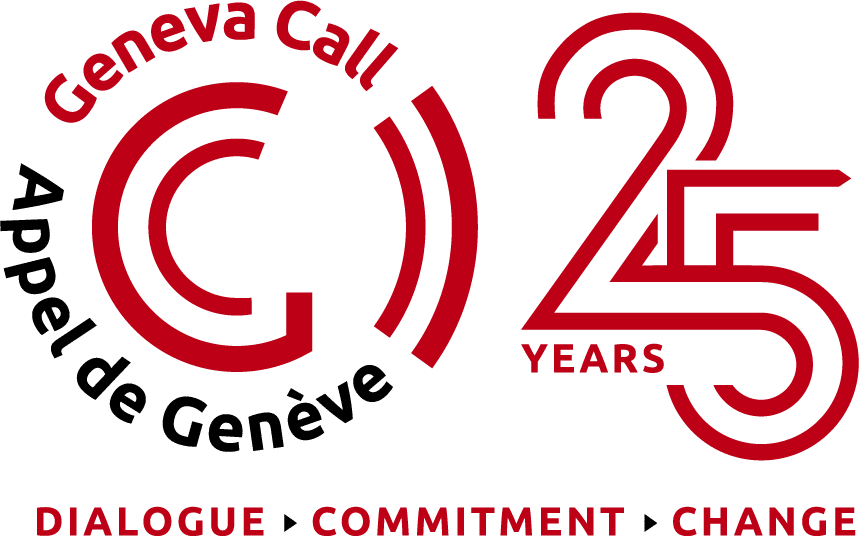Armed Non-State Actors and Landmines Volume II : A Global Report of NSA Mine Action
1 November 2006
NEW REPORT AVAILABLE
Armed Non-State Actors and Landmines
Volume II : A Global Report of NSA Mine Action
Geneva – 16 November 2006
Today Geneva Call is launching its new report on mine action involving armed non-state actors (NSAs) within the framework of the Third Review Conference of the Convention on Conventional Weapons in Geneva, Switzerland. The report compiles and analyzes data on NSA involvement in the five pillars of mine action (mine ban advocacy, stockpile destruction, mine clearance, mine risk education, and victim assistance), including stakeholders’ views on the benefits, difficulties and lessons learned in this regard.
This report is now available online on Geneva Call’s website: http://genevacall.org/home.htm. Hardcopies can be obtained by writing to info@genevacall.org. For further information on the report, please contact Anki Sjöberg, Research Coordinator – Telephone number: +41 22 879 10 50.
|
Abstract At the global level, current and former NSAs are contributing to humanitarian mine action, understood as activities which aim to reduce the social, economic and environmental impact of landmines and unexploded ordnance. The present report, which completes the 2005 report “Armed Non-State Actors and Landmines. Volume I: A Global Report Profiling NSAs and Their Use, Acquisition, Production, Transfer and Stockpiling of Landmines”, aims to add to the knowledge concerning the involvement of NSAs in mine action. Together, the two reports provide a balanced picture of NSA involvement in the landmine problem. This report compiles and analyzes data on NSA involvement in the five pillars of mine action, including stakeholders’ views on the benefits, difficulties and lessons learned in this regard. NSAs have been active in mine action efforts both formally (through mine action programs) and informally (through spontaneous or ad hoc efforts) in the areas of each of the mine action pillars. The research indicates that the primary benefits of NSA mine action are the same as those arising from other forms of mine action; i.e. principally humanitarian and developmental benefits. Importantly however, the complementary effects of NSA mine action (employment and stability; peace-building; security and disarmament; and openness to discussing other humanitarian norms) were considered to be different from other forms of mine action, and sometimes even more important than the primary benefits. The report shows that it is possible to engage in humanitarian mine action with NSAs. Given the benefits of such engagement, it is important not to discriminate against populations in areas under the control or influence of NSAs, which, as compared to populations in areas controlled by a state, less frequently benefit from mine action programs. Difficulties and challenges can be – and have been – overcome. The main conclusion of the research is that engaging NSAs in mine action has significant benefits, since their involvement supports efforts to reduce the humanitarian impact of anti-personnel mines and unexploded ordnance. |
The report is part of a project supported by the Geneva International Academic Network (GIAN), the Swedish Ministry for Foreign Affairs, the Government of Italy, and the continued support of the Swiss Federal Department of Foreign Affairs. Institutions contributing to the report are the Program for the Study of International Organization(s) of the Graduate Institute of International Studies, the United Nations Mine Action Service, the Geneva International Centre for Humanitarian Demining, the University of Geneva and the Graduate Institute of International Studies, Geneva.
